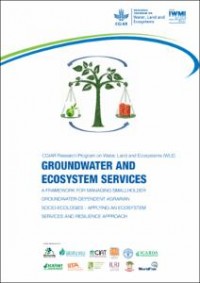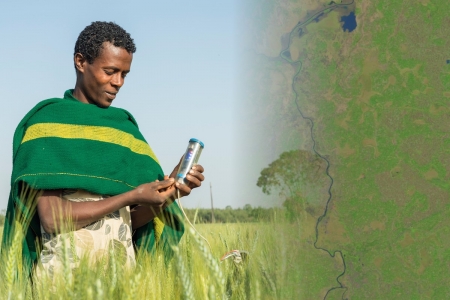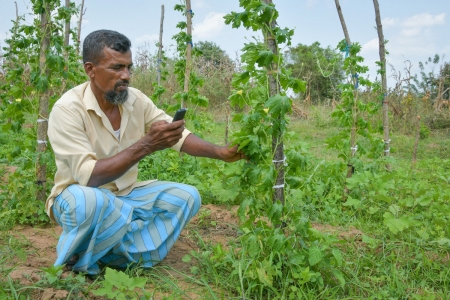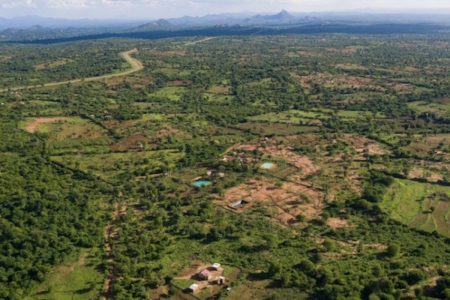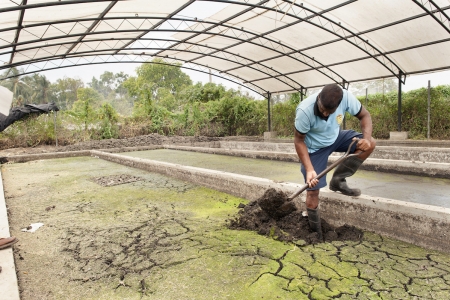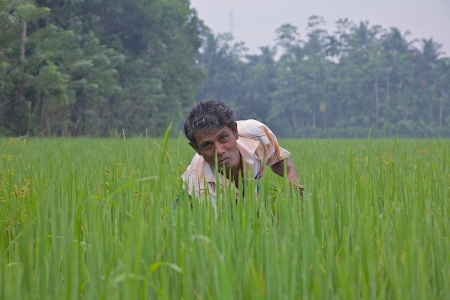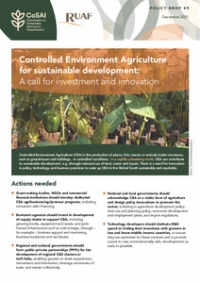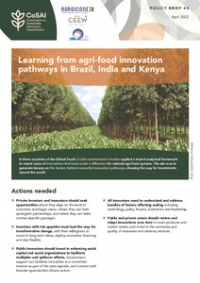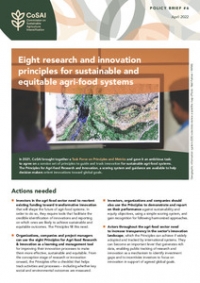In many developing countries, groundwater for irrigation and drinking water has played a critical role in development. But unsustainable use and uninformed land use changes are depleting the quantity and deteriorating the quality of groundwater and associated ecosystems, upon which livelihoods are dependent.
According to a new framework by WLE, a change in perspectives is needed to view groundwater as part of a larger hydrological system associated with numerous ecosystem services, indispensable for sustainable development and livelihoods, especially irrigated agriculture for smallholder farmers.
Collaboration across sectors will be crucial to manage these services sustainably and equitably. In particular, the gap between the surface water sector and groundwater sector must be bridged, and researchers need to find creative, economically-viable solutions that balance the many trade-offs and that the politicians and the private sector can support.
At the center of the framework is the concept that many ecosystems – aquatic, terrestrial and coastal – depend on groundwater and that they underpin livelihoods and must be managed sustainably to ensure long-term benefits and resilience. Essentially, don’t kill the goose that lays the golden egg.
The benefits, or ‘ecosystem services’, from groundwater are fundamental to human health and livelihoods. Like all systems, everything is interlinked. For example, over-pumping of groundwater can disrupt the flow to streams, wetlands and lakes; river pollution can seep into groundwater, contaminating drinking water and putting the health of people and livestock at risk.
According to the framework, these relationships between groundwater and other parts of the environment – including humans – are highly complex and must be managed as a system with tradeoffs. For example, an increase in irrigation could boost farmer yields but diminish drinking water supplies. To balance stakeholder needs, researchers, communities and policy makers need to identify, measure, value and then prioritize the ecosystem services available, before applying a new groundwater management plan.
It is also vital to understand each region’s unique social and political context, which will heavily influence what works and does not work when planning for long-term, sustainable use of groundwater-derived ecosystem services.
To help identify and apply groundwater management plans based on the ecosystems approach that work under certain conditions, the framework provides a detailed description of six overlapping approaches, complete with examples where they have been implemented across the world.
One of these approaches, ‘Command and Control’, refers to government regulations such as water laws, licensing and the spacing of wells. ‘Community Management’ includes crop water budgeting, tradable water rights and a mix of formal and informal rules created by the local stakeholders. Examples of ‘Market Instruments’ are scarcity pricing, tariffs and subsidies.
The other three approaches include ‘Supply Augmentation’ (increasing the supply of water), ‘Demand Management’ (reducing the demand of water) and ‘Indirect Approaches’ (finding linkages to other sectors such as energy or food policies).
Looking ahead, the framework compiles a list of researchable tasks. This includes:
- Developing better tools to understand the linkages between groundwater and ecosystems across watersheds and over time
- Finding ways to place economic and non-monetary value on groundwater-associated ecosystem services
- Investigating creative incentives that promote equity (i.e. payment for ecosystem services)
- Understanding how politics and decisions beyond the water sector influence communities and their use of groundwater
